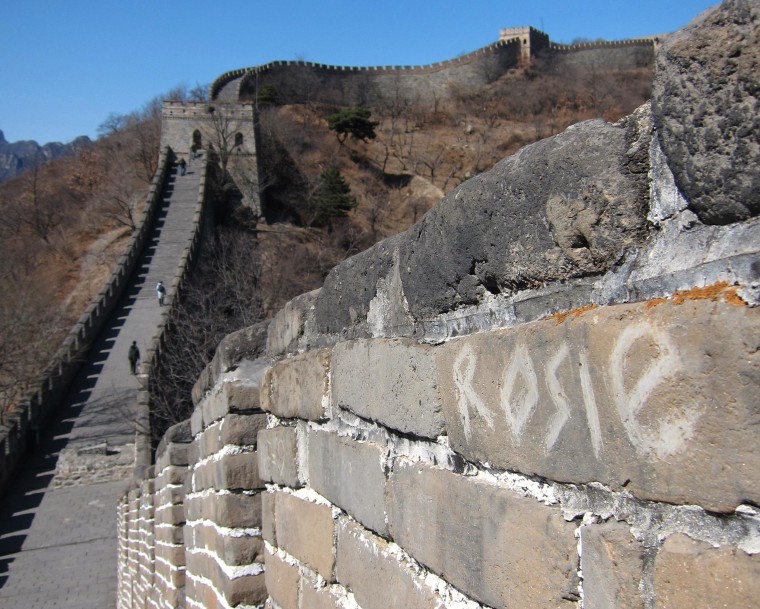Graffiti left behind by modern-day tourists has been spotted on many iconic world landmarks, including Stonehenge in England and sacred temples in Egypt.
Now China is trying to keep visitors from scratching messages on the Great Wall, the 5,500-mile-long UNESCO World Heritage site that was once the world’s largest military structure.
At Mutianyu, a much-visited section of the wall about an hour northeast of Beijing, officials are creating designated “graffiti zones” where tourists can leave their messages, written in various languages, instead of carving them into ancient stone or bricks, the China Daily News reported.
Some reports describe the “graffiti zones” as plastic screens affixed to walls where tourists are invited to write their messages in ink. When the sheets are full, they will be removed and replaced.
“It is ever more important to introduce visitor management measures in world heritage sites such as the Great Wall of China,” said Marcelo Risi, a spokesman for the United Nations World Tourism Organization, which promotes responsible travel.
This isn’t the first time Chinese officials have tried to combat graffiti on sections of the Great Wall. In the past, signs warning against leaving graffiti have been posted and anti-graffiti monitors were sent out on patrol.
"Our interaction with this graffiti is complicated," said Guy Rubin of Beijing-based Imperial Tours. "The act of leaving graffiti on the wall is a re-enactment as ancient as the wall itself.
"That said, of course, if every visitor defaced the wall, it would be a mess in no time."
